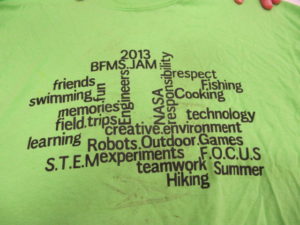STEM Professional Development for Informal Educators: Takeaway Five
This is the fifth in a series of posts on takeaways in facilitating STEM professional development for informal educators.
5. Informal educators want and appreciate follow-up support
Building on the importance of long-term professional development, active follow-up support to implementing STEM in their programs is critical to its success. Just as K-12 educators need guidance and support to implement curriculum into their classroom, so do informal educators need guidance and support to implement curriculum into their program.
Extensive one-on-one support was required and provided. This support ranged from what to teach, connecting them to local STEM professionals and opportunities, to modifying lessons to meet the needs of their students, to tips in teaching a specific lesson, to resources, to writing grants, and much more.
A resource that was very helpful was the Theme Camp Guides developed by the NASA Summer of Innovation (SoI) Curriculum Specialists. Located on the NASA SoI website, these guides provided suggestions of lessons, in an appropriate learning progression, to include camps that varied from one to five days in length. It also provided direct links and supporting resources to the lessons.
Investing the extra time and energy to support the informal education programs led to sustainable programs; programs that continue to thrive and not “die” after the Summer of Innovation grant ended. STEM is now an integral part of their program.
Informal education programs that had no or minimal STEM education now have quality daily or weekly STEM programs and summer STEM camps.



